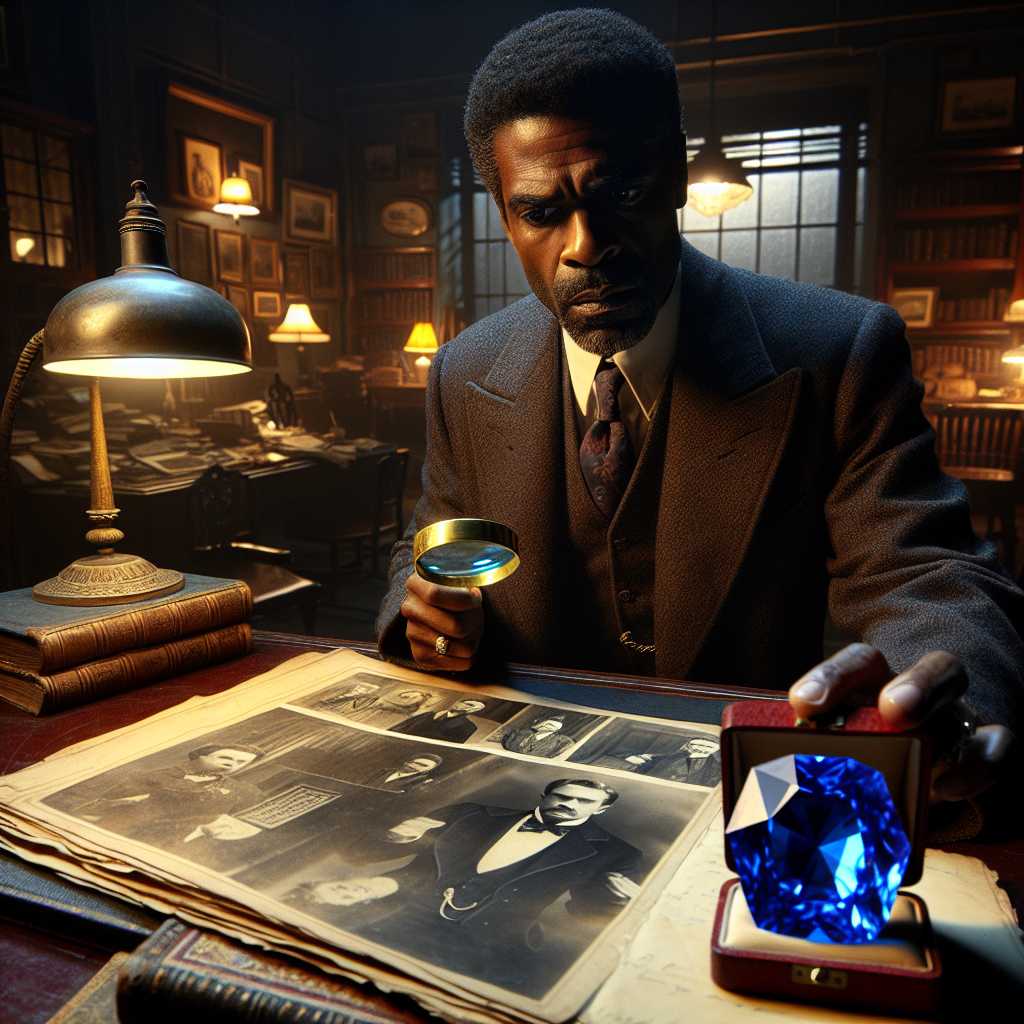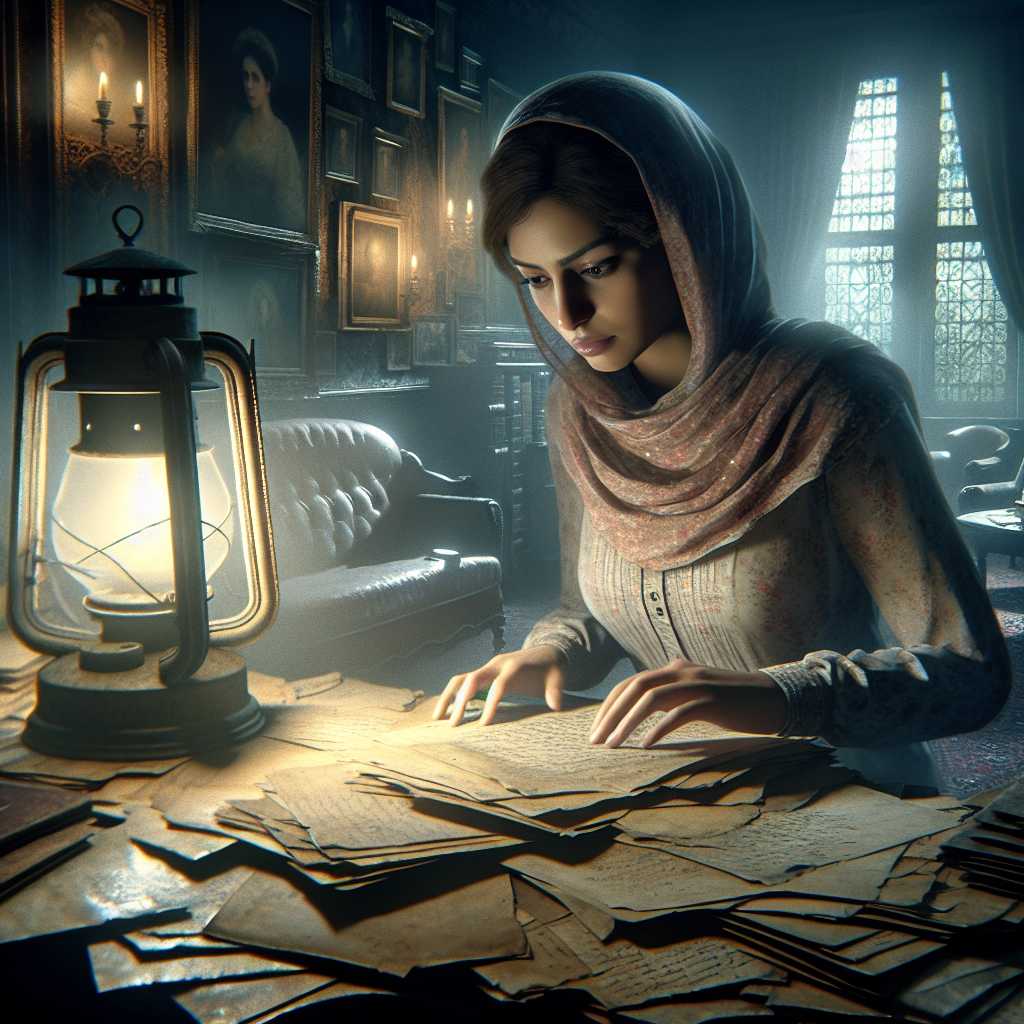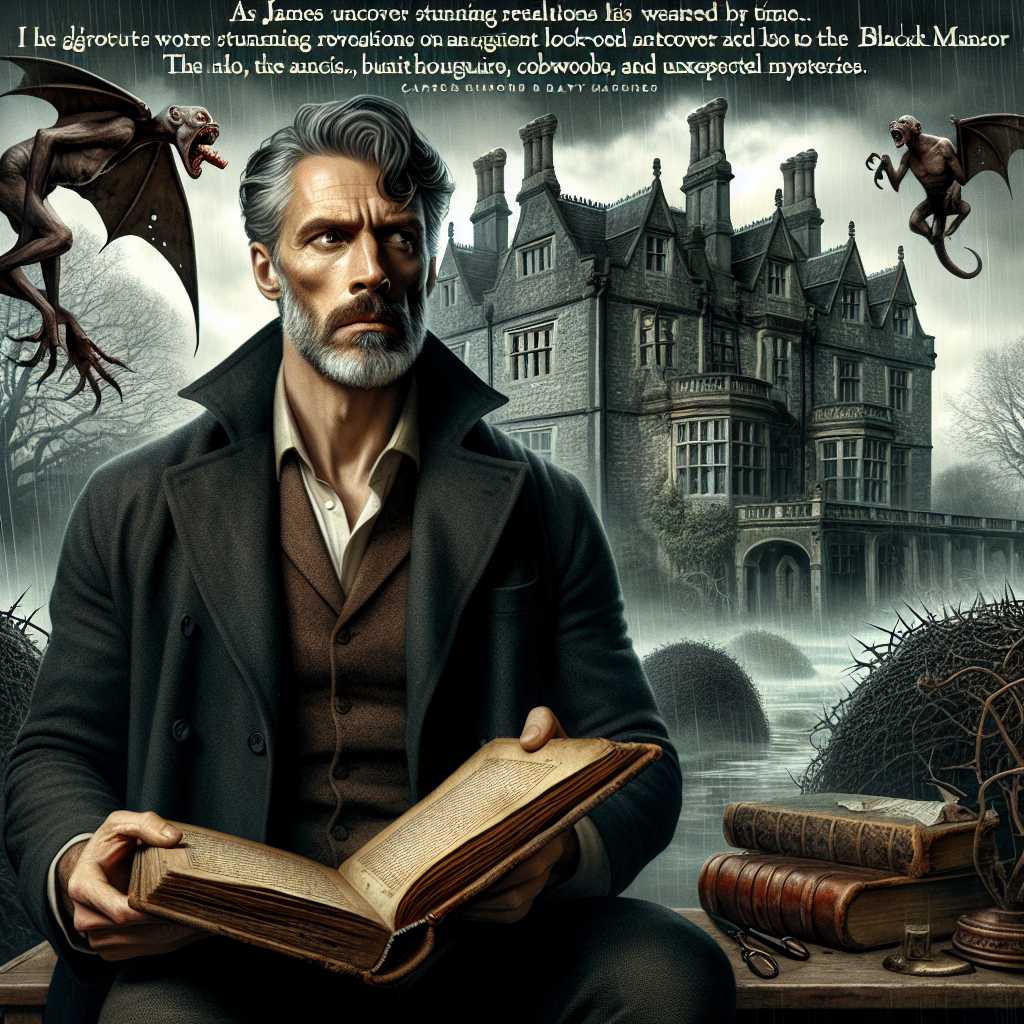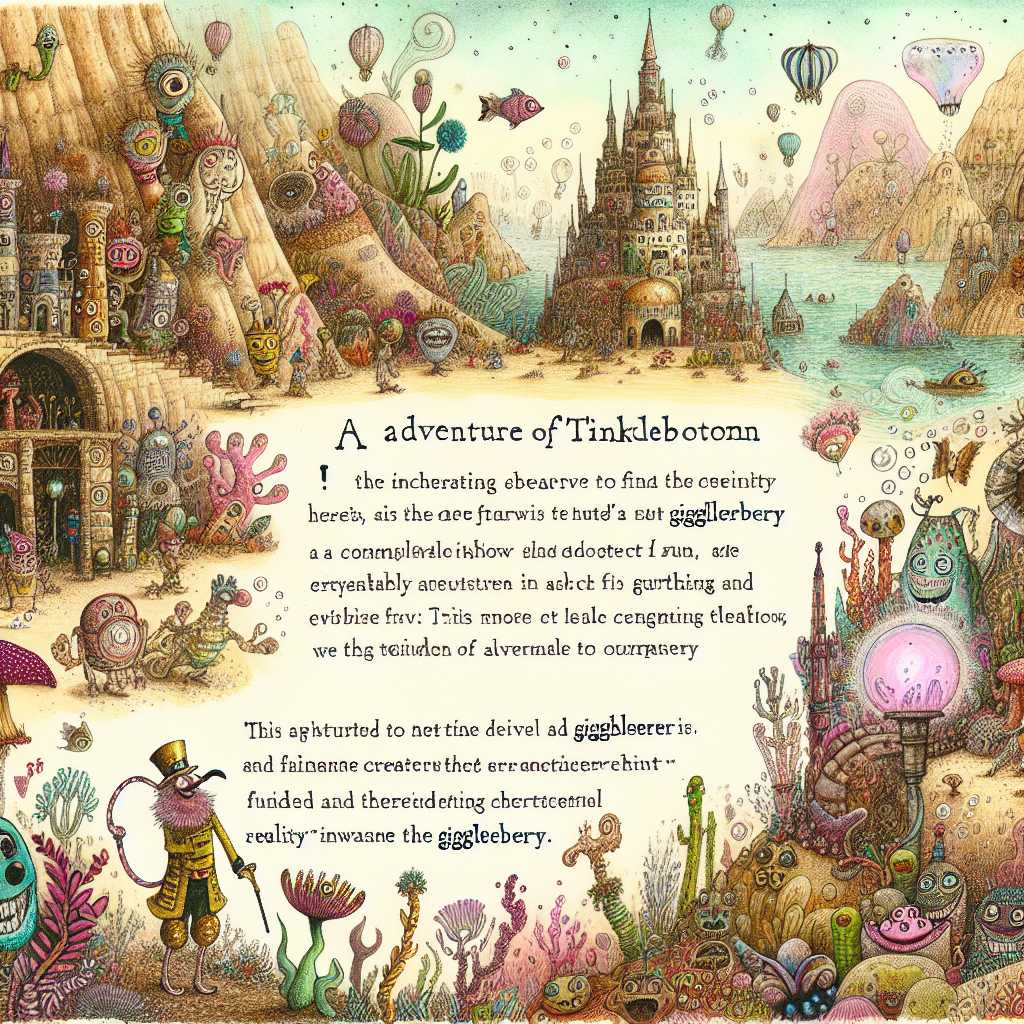
On a fog-laden evening in the heart of Victorian London, the cobblestone streets echoed with the sound of carriage wheels and the hurried steps of passersby. It was a time when shadows held secrets, and every corner whispered tales of mystery. Amidst this bustling backdrop, in a secluded corner of Bayswater, there resided a man renowned for his unparalleled skills in solving enigmas—the illustrious Detective Phineas March.
Detective March was a man of definitive habits and immovable determination, known more for his formidable intellect than his personable charm. With his deerstalker hat and magnifying glass, he was the very embodiment of his trade. If there was a puzzle to be solved, rest assured March was already ten moves ahead.
One evening, as a brisk wind swept through the city, a distressed knock sounded at the door of March's modest parlor. It was Lady Evelina Worthington—a matronly woman of imposing stature and considerable wealth. Her face was flushed with panic, her eyes wild with fear.
"Detective March, you must help me," she implored, twisting the strings of her velvet cloak. "The Star of Kashmir has been stolen!”
The Star of Kashmir was an ancient sapphire of incomparable beauty and value, a gem rumored to have originated from the farthest reaches of India—a legacy within the Worthington family for generations. Its theft was no small matter, both in sentiment and scandal.
Intrigued, March invited Lady Worthington to recount the details. She explained that the sapphire vanished from its glass display case within their family manor, Rivenstone Hall, just the night prior. What puzzled her deeply was that the manor's security had not been breached. Windows and doors remained untouched and no sign of forced entry could be found.
With urgency in his demeanor, March agreed to undertake the investigation, promising to restore the sapphire and the peace it had taken with it. Accompanied by the ever-loyal Inspector Harold Graves, March reached Rivenstone Hall as the clock struck midnight, the fog thick as pea soup blanketing their arrival.
The detective and the inspector meticulously inspected the scene of the crime. The display case, shuttered but not broken, fascinated March. As his fingers ran along its ornate edges, he found a curious scratch on the lock, suggestive not of force, but a deft touch—a sign of a skilled hand.
March turned to Lady Worthington's house staff, questioning each ever so subtly, for he knew well that in patience lay truth’s revelation. Among them was a nervous footman, Edward Whittaker, whose eyes darted with a fidgety guilt.
"Harold,” said March, addressing Graves, "it seems young Whittaker has much on his mind. Let’s speak with him privately."
Whittaker, though visibly shaken, confessed little beyond his admiration for the sapphire. Yet, March sensed a deeper layer, an unspoken unease that tightened with each query about the manor's affairs. A promising lead, but incomplete.
From Rivenstone Hall, March’s investigation took them across London’s grand tapestry of secrets—a jeweler's ledger here, a pawnshop there. Each clue was a thread woven into a larger fabric. The detective observed, deduced, and filed every detail with obsession until they painted a picture as clear as day.
Three days later, as dawn crept gently over the horizon, March returned to Rivenstone Hall. The household gathered, eyes heavy with anticipation. March's demeanor was unusually serene, indicating a reveal that would fill the morning air with revelations.
"Lady Worthington,” he began, sinking comfortably into an armchair, "It is my pleasure to inform you that The Star of Kashmir is safe. To my regret, its disappearance was no theft."
Gasps filled the room. "No theft?” repeated Lady Worthington, confusion wrinkling her brow.
"Indeed," March replied. "The disappearance was a meticulously orchestrated trick. Whittaker's frequent visits to the display were not out of guilt but concern—he watched as he observed your niece, Miss Amelia Worthington, practice her sleight of hand. She cared for Whittaker and dared not risk your wrath, Lady Worthington, for your stance against their association is well-known."
The room held its breath, eyes turning to young Amelia whose cheeks burned crimson. "I wanted to help Edward," she murmured. "The sapphire was merely borrowed, and in its place, I put a duplicate. You see, Edward wished to prove his worth to you with legitimate work, not assuming privilege by my association. He plans to return it once the jeweler appraises it for a loan that Edward will earn honestly."
Lady Worthington's stern eyes softened, a maternal warmth radiating through her imposing visage. She nodded, granting silent forgiveness, and held March’s gaze with gratitude.
"You have solved more than a mystery, Detective March," she confessed. "You have preserved the integrity of a family dearer than gems."
March, in his reserved way, simply tipped his hat before departing, leaving behind a household renewed with understanding. For indeed, in Victorian London, not all mysteries unraveled by his keen eye were riddled with villainy—some, it seemed, were tied by the delicate chords of the heart.










